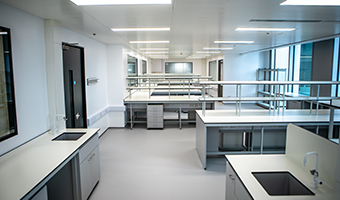In 2018 London’s travel network will welcome Crossrail to its ranks – a west to east rail link, connecting Maidenhead in the west with Shenfield in the east.
The £15.9bn project is expected to bring £42bn to the UK economy, increase London’s rail capacity by 10% and, consequently, bring 1.5m more people within a 45 minute commute of London’s main business districts.
While these figures have their own impact on property investors and developers, the Crossrail map will significantly change the occupational landscape, too – and long before it opens for business in 2018.
Maidenhead, Slough, Heathrow, Ealing and Reading to benefit from Crossrail
To the west of Central London, five commercial centres stand to benefit most from Crossrail - namely Maidenhead, Slough, Heathrow, Ealing and Reading.
For those on the Crossrail network, travelling to the West End, City and Canary Wharf will be quicker and more convenient. Passengers travelling from the likes of Maidenhead and Slough will have quicker journeys and avoid having to change on to the London Underground to continue their journey at Paddington Station.
Impact on journey times to Central London (Tottenham Court Road):
Station |
Current network |
Via Crossrail |
|
Maidenhead
|
47 mins
|
42 mins
|
|
Slough
|
60 mins
|
32 mins
|
|
Heathrow
|
39 mins
|
28 mins
|
|
Ealing Broadway
|
27 mins
|
14 mins
|
|
Reading
|
51 mins
|
60 mins
|
NB - these figures are based on journey times from TfL, National Rail Enquiries and Crossrail.
How will Crossrail impact office occupiers?
With quicker and easier travel into Central London’s main business districts, the Thames Valley centres we have highlighted will become increasingly attractive to large corporate occupiers; where office space in London isn’t necessary, but regular access to the City and Heathrow is required, occupiers’ interest in the region is likely to be renewed.
Indeed some occupiers are already starting to think about this issue and Adobe’s move from Stockley Park to Maidenhead in 2011 was partly based on the arrival of Crossrail in 2018. This is a trend which we expect to continue.
Improved commuter journeys
The improved connectivity is not only attractive from an office occupation perspective - commuters along the Crossrail route will also have much improved journeys to and from work.
When looking to recruit and retain strong workforces, the benefits of locating and occupying space along the Crossrail route will be realised and the net for accessible labour pools is able to be cast much further. Indeed for occupiers looking to attract the best talent, a modern, well designed office in an accessible location is a big plus.
Headline rents expected to rise
As Crossrail’s arrival comes further to the fore, the Thames Valley centres served by the line will enjoy increased popularity. Office take-up will rise, there will be further pressure on the already low levels of good quality space, and the incentives currently on offer to tenants will diminish.
As a result, and in hand with the expected recovery in wider market conditions, we would anticipate that headline rents will start to rise. Companies that signed their leases in the late 1990s and early 2000s will actually be paying more per sq ft for their office space than the current prime rent in all the markets we’ve highlighted (with the exception of Reading).
REGISTER FOR UPDATES
Get the latest insight, event invites and commercial properties by email







